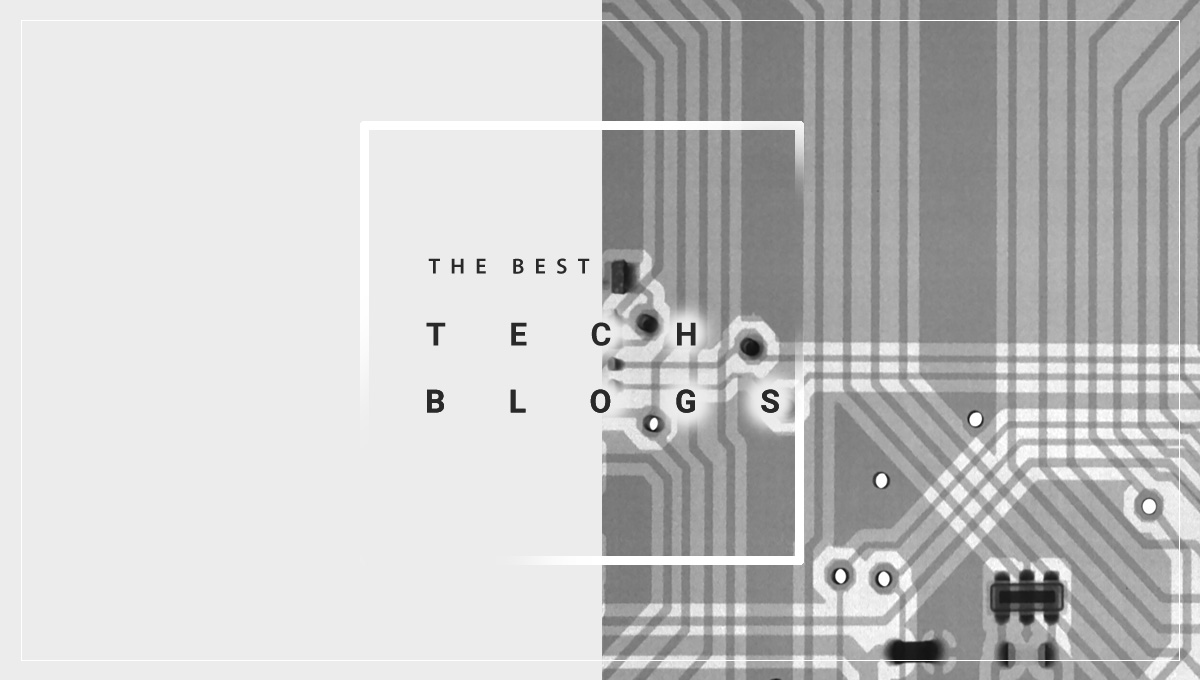Top Reasons to Follow the Best tech blog for Tech News and Tutorials
Exactly How Blockchain Modern Technology Is Revolutionizing Data Protection
Blockchain technology is basically altering the landscape of information security by introducing a decentralized framework that assures boosted transparency and durability. Unlike standard systems, which count on centralized data databases, blockchain distributes data across a network, minimizing susceptabilities and single points of failure. Using advanced cryptographic techniques guarantees that data stays tamper-proof, cultivating depend on amongst customers and stakeholders. As industries quickly adapt to this modern technology, inquiries emerge regarding its more comprehensive influence and prospective obstacles. What effects does this change hold for future data protection strategies and governing frameworks? The responses may shock you (Best tech blog).
The Essentials of Blockchain
Blockchain technology, an advanced idea in digital information administration, basically transforms how info is saved and protected. At its core, a blockchain is a dispersed ledger that records purchases across a network of computer systems, making certain transparency and immutability.
Secret to understanding blockchain is the hashing procedure, which secures deal information right into a special alphanumeric code. This cryptographic function guarantees that any modification in the purchase data leads to a totally various hash, thus guarding versus meddling. The consensus device, another important element, confirms and verifies brand-new transactions via a network of nodes, thus removing the requirement for a central authority.
In addition, blockchain's append-only structure makes certain that information, when included, can not be deleted or modified. This characteristic guarantees a proven and long-term record of transactions, cultivating depend on amongst individuals. Because of this, blockchain gives a durable framework for data stability, using industries a trustworthy approach for monitoring and handling electronic details in a safe, transparent fashion.
Decentralization and Safety And Security
Decentralization, a core principle of blockchain modern technology, significantly improves data protection by dispersing control across a network rather than relying upon a single, central entity. This distribution reduces the threat of solitary points of failure, which are prevalent in traditional central systems. By spreading data across numerous nodes, blockchain makes sure that also if one node is compromised, the entire network remains protected. This redundancy not only strengthens the honesty of the information but likewise enhances its strength to cyberattacks and system failures.

Additionally, decentralization empowers users with better control over their information. Each participant in the network has accessibility to the whole blockchain, allowing them to confirm and examine purchases independently. This transparency promotes trust fund among users, as they do not have to depend on a main authority to guarantee data stability. Generally, decentralization contributes in improving information protection in blockchain networks.

Cryptographic Strategies
At the heart of blockchain technology, cryptographic methods play a crucial duty in safeguarding information, making certain both discretion and honesty. Cryptography in blockchain uses a combination of symmetrical and crooked algorithms to secure information, making it easily accessible only to accredited celebrations.
Hash features are another important element, changing input data into a fixed-size string of characters, efficiently creating an one-of-a-kind electronic finger print for each block. This makes certain that any effort to change the data will certainly cause a completely different hash, hence maintaining the immutability of the blockchain. Furthermore, digital trademarks verify the authenticity and stability of transactions, giving a layer of non-repudiation.
The decentralized nature of blockchain, combined with durable cryptographic techniques, eliminates the need for intermediaries, minimizing potential susceptabilities. As blockchain modern technology progresses, improvements in cryptography such as zero-knowledge proofs and homomorphic security remain to boost protection procedures, better fortifying data defense in this advanced digital ledger system.
Use Situations Throughout Industries

In the healthcare industry, blockchain guarantees the protected storage space and sharing of individual documents, promoting interoperability while securing sensitive information from unauthorized accessibility. This modern technology empowers people with control over their medical history and facilitates smooth sychronisation amongst health care carriers.
Supply chain management benefits significantly from blockchain's unalterable journal, which guarantees traceability and credibility of items from beginning to consumer. By boosting transparency, blockchain aids mitigate issues such as counterfeiting and dishonest sourcing.
Additionally, blockchain's decentralized nature is improving the energy industry by allowing peer-to-peer energy trading, where consumers can deal excess renewable resource straight. This promotes a much more lasting and efficient energy environment.
In the world of intellectual property, blockchain offers a tamper-proof platform for creators to sign up and protect their works, guaranteeing rightful attribution and reasonable compensation. These diverse use cases highlight blockchain's duty as a pivotal force in redefining data safety across sectors.
Future of Information Defense
As we aim to the future of information security, blockchain technology is positioned to play a pivotal duty in safeguarding electronic info. With its decentralized and unalterable characteristics, blockchain uses a robust framework for securing sensitive data against unauthorized accessibility and cyber dangers. This innovation guarantees that once information is tape-recorded, it is almost difficult to change without discovery, hence providing a considerable advantage over traditional information storage techniques.
The assimilation of blockchain with other innovative navigate here modern technologies, such as man-made intelligence and the Internet of Things (IoT), is expected to enhance data protection strategies further. By leveraging clever contracts, companies this link can automate and enforce security protocols, decreasing human mistake and enhancing performance. Furthermore, blockchain's ability to give traceable and transparent purchases will certainly bolster trust fund and accountability in data management methods.
As governing landscapes advance, blockchain's compliance-friendly nature will certainly become progressively pertinent. It can aid companies meet rigid information protection laws, such as the General Data Protection Regulation (GDPR) and the California Customer Personal Privacy Act (CCPA), by giving proven records of data processing activities. Ultimately, blockchain's one-of-a-kind features position it as a transformative tool in the recurring mission to safeguard the electronic globe against ever-evolving cyber risks.
Verdict
Blockchain innovation represents a paradigm change in information protection by leveraging decentralization and cryptographic strategies to improve transparency, trust, and data integrity. As cyber dangers evolve, blockchain arises as a vital device for durable data defense throughout different sectors.
Blockchain modern technology is fundamentally modifying the landscape of data safety and security by presenting a decentralized visit this site framework that promises enhanced openness and resilience. Unlike standard systems, which rely on central information databases, blockchain distributes data throughout a network, minimizing susceptabilities and solitary factors of failure.Decentralization, a core principle of blockchain technology, significantly boosts data security by dispersing control across a network rather than counting on a single, central entity.At the heart of blockchain technology, cryptographic strategies play an essential function in guarding information, ensuring both privacy and integrity.Blockchain innovation represents a standard shift in data security by leveraging decentralization and cryptographic methods to enhance transparency, depend on, and data honesty.